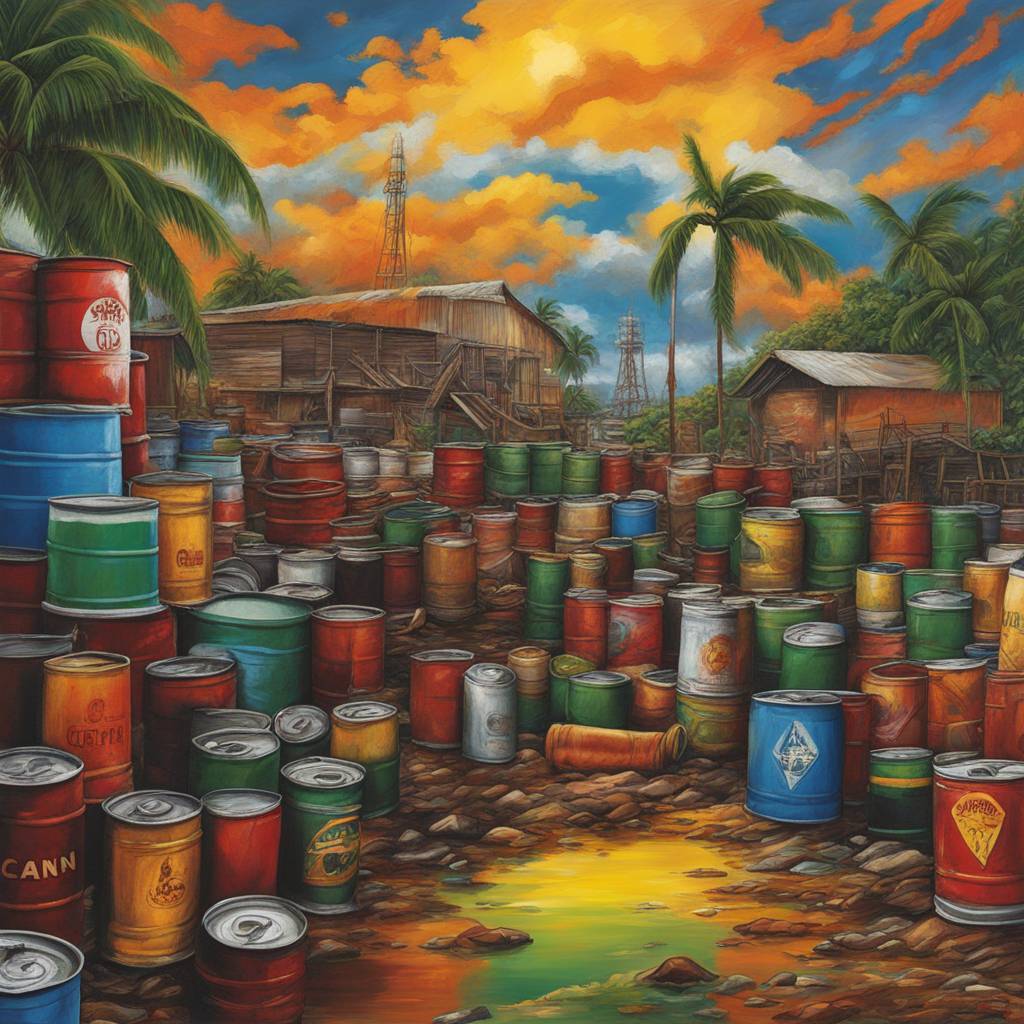The closure of sugar estates in Guyana, a year after the discovery of oil, has left many sugar workers struggling to find new jobs, with minimal employment opportunities in the petroleum industry. This has raised questions about how Guyanese individuals without the necessary skills or education for petroleum jobs can benefit from the transition to a new economy. Some experts argue that the focus on a petroleum-driven vision of progress may be outdated, advocating for alternative sources of energy such as cellulosic ethanol from the sugar industry’s waste. However, others maintain that the sugar industry is too small to support substantial biofuel production, and that solar energy is too expensive to be a primary power source.
While some of Norway’s funding for carbon offsets in Guyana has been allocated to small solar farms, the much-anticipated giant hydroelectric project powered by a waterfall has been stalled. The focus in Guyana is now predominantly on oil and gas, with a resurgence of the patriotic calypso song “Not a Blade of Grass” highlighting the nation’s determination to assert its sovereignty over its oil resources. Despite some voices speaking out against drilling, the prevailing sentiment is in favor of maximizing the benefits from oil production, with debates revolving around renegotiating oil contracts to secure a larger share of the proceeds. Criticism or questioning of the regulation of the petroleum industry is often met with fear of ostracism, stifling dissent among journalists, academics, lawyers, and other professionals in Guyana.
The dominance of oil in Guyana’s economy and national imagination poses challenges for sustainable development and equitable distribution of resources, particularly for those left behind in the transition from traditional industries like sugar to the booming petroleum sector. The lack of viable alternatives for former sugar workers highlights the urgent need for diversified economic opportunities and investments in renewable energy sources beyond oil and gas. Advocates for sustainable energy solutions, such as cellulosic ethanol and solar power, face obstacles in overcoming entrenched interests and perceptions favoring petroleum development. The tension between maximizing short-term gains from oil production and addressing long-term environmental and social impacts underscores the complexity of Guyana’s economic transformation.
As Guyana grapples with the implications of its newfound oil wealth and the challenges of transitioning to a petroleum-driven economy, critical questions remain about the sustainability and inclusivity of this transformation. The legacy of the sugar industry closures serves as a stark reminder of the social and economic dislocation that can accompany rapid shifts in economic priorities. The debate over the distribution of oil revenues and the regulation of the petroleum industry reflects broader concerns about governance, transparency, and accountability in a context of growing dependence on extractive industries. Balancing the potential benefits of oil production with the need for diversified, sustainable economic development will require careful planning, community engagement, and strategic investment in alternative energy sources to ensure a more balanced and resilient economy for all Guyanese citizens.








